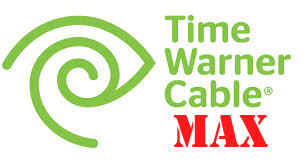 Despite its pending merger with Comcast, Time Warner Cable is still promising to boost broadband speeds by the end of this year in New York City and Los Angeles.
Despite its pending merger with Comcast, Time Warner Cable is still promising to boost broadband speeds by the end of this year in New York City and Los Angeles.
The TWC Maxx program was announced before the merger, but Time Warner says it is still going ahead with upgrades and produced a video showing some of the behind-the-scenes work in Los Angeles.
Although the video doesn’t show much more than people pointing at equipment displays and maintaining equipment racks, it does include an interview about what Time Warner is doing to prepare for infrastructure upgrades serious enough to need a bigger air conditioner for the building.
Time Warner does warn customers they may experience brief service interruptions as a result of the work.
When complete, Time Warner Cable customers in both cities will have all-digital television service and major broadband speed upgrades:
|
|
Current Mbps Speeds Up to |
New Mbps Speeds Up to |
|
Everyday Low Price Customers |
2/1 |
3/1 |
|
Basic Customers |
3/1 |
10/1 |
|
Standard Customers |
15/1 |
50/5 |
|
Turbo Customers |
20/2 |
100/10 |
|
Extreme Customers |
30/5 |
200/20 |
|
Ultimate Customers |
50/5 |
300/20 |
These upgrades may be modified if/when Comcast takes over, and Time Warner has not disclosed which cities will get the upgrades next.
[flv]http://www.phillipdampier.com/video/TWC Behind The Scenes at a Los Angeles Hub Time Warner Cable 3-26-14.flv[/flv]
Jay Gormley, a former reporter for KTVT in Dallas now working for Time Warner Cable takes customers on a tour of a Los Angeles Time Warner Cable hub slated to get service upgrades. (2:01)


 Subscribe
Subscribe
 Since the federal government deregulated the cable industry in the 1990s, state and local officials have had little oversight over cable service and pricing, but in many states regulators still have a voice in mergers and other business deals.
Since the federal government deregulated the cable industry in the 1990s, state and local officials have had little oversight over cable service and pricing, but in many states regulators still have a voice in mergers and other business deals. So far, Comcast does not seem concerned about Cuomo’s proposal.
So far, Comcast does not seem concerned about Cuomo’s proposal.
 Time Warner Cable telephone customers may find their phone numbers missing from directory assistance records and residential phone books.
Time Warner Cable telephone customers may find their phone numbers missing from directory assistance records and residential phone books.
 Since 2002, New York Tax Law has required mobile phone companies to collect and pay sales taxes on the full amount of the monthly access charges for their calling plans. For example, when a customer pays Sprint a fixed monthly charge of $39.99 for 450 minutes of mobile calling time, the law requires Sprint to collect and pay sales taxes on the entire $39.99. According to the Attorney General’s complaint, starting in 2005, Sprint illegally failed to collect and pay New York sales taxes on an arbitrarily set portion of its revenue from these fixed monthly access charges.
Since 2002, New York Tax Law has required mobile phone companies to collect and pay sales taxes on the full amount of the monthly access charges for their calling plans. For example, when a customer pays Sprint a fixed monthly charge of $39.99 for 450 minutes of mobile calling time, the law requires Sprint to collect and pay sales taxes on the entire $39.99. According to the Attorney General’s complaint, starting in 2005, Sprint illegally failed to collect and pay New York sales taxes on an arbitrarily set portion of its revenue from these fixed monthly access charges.